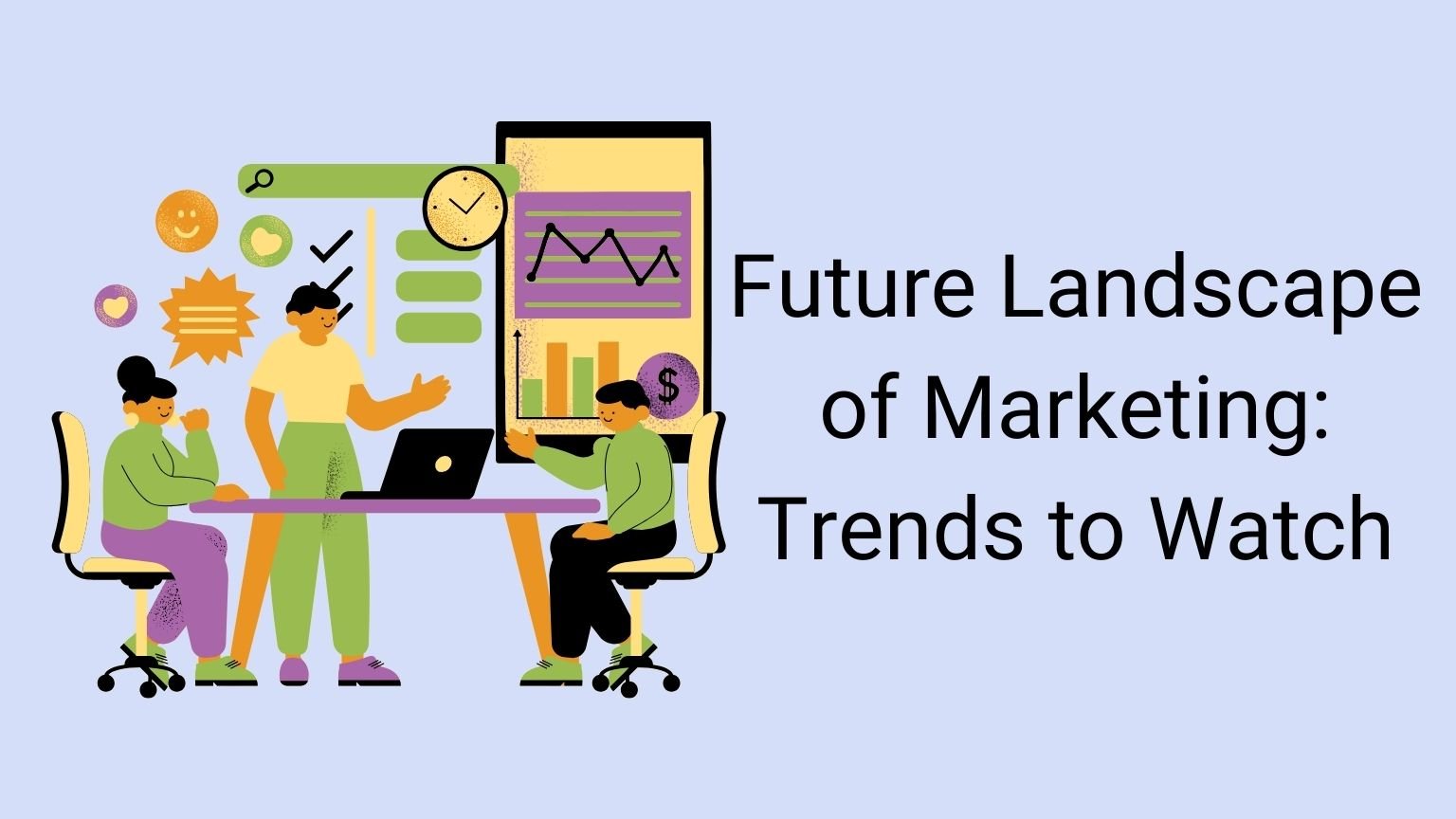Table of Contents
As we navigate the ever-evolving landscape of marketing and advertising, it’s clear that the future holds exciting and transformative trends. Businesses and marketers must stay ahead of these changes to remain competitive and effectively engage their audiences. Here are some key trends shaping the future of marketing and advertising:
1. Personalization and Customer Experience
Personalization is no longer a luxury; it’s a necessity. Consumers expect tailored experiences that resonate with their preferences and behaviors. Advanced data analytics and AI-driven tools enable brands to deliver highly personalized content and offers. In the future, personalization will go beyond simple recommendations, encompassing every touchpoint in the customer journey.
Key Takeaway:
Invest in robust data analytics and AI technologies to create personalized marketing strategies that enhance customer experience and loyalty.
2. Artificial Intelligence and Automation
AI and automation are revolutionizing marketing operations. From chatbots providing 24/7 customer support to automated content creation and distribution, these technologies streamline processes and improve efficiency. AI can analyze vast amounts of data to predict trends, optimize campaigns, and even personalize content in real-time.
Key Takeaway:
Embrace AI and automation to increase efficiency, reduce costs, and deliver more targeted and effective marketing campaigns.
3. Video Content and Live Streaming
Video content continues to dominate the digital landscape. Consumers prefer video for its engaging and easily digestible format. Live streaming, in particular, has gained immense popularity, offering real-time interaction and authentic engagement with Advertising trends. Platforms like Instagram, YouTube, and TikTok are leading this trend.
Key Takeaway:
Incorporate video content and live streaming into your marketing strategy to boost engagement and reach a wider audience.
4. Voice Search and Smart Speakers
The rise of voice-activated devices like Amazon’s Alexa and Google Home is changing how consumers search for information and interact with brands. Optimizing content for voice search is becoming crucial, as more people use voice commands to find products and services.
Key Takeaway:
Optimize your website and content for voice search to stay ahead in the evolving search landscape and enhance accessibility for users.
5. Sustainability and Social Responsibility
Consumers are increasingly valuing sustainability and social responsibility. Brands that demonstrate a commitment to environmental and social issues are more likely to build trust and loyalty. Marketing strategies that highlight sustainable practices and social initiatives will resonate more with conscious consumers.
Key Takeaway:
Integrate sustainability and social responsibility into your brand’s core values and marketing messages to attract and retain ethically-minded customers.
6. Augmented Reality (AR) and Virtual Reality (VR)
AR and VR technologies are creating immersive experiences that captivate audiences. From virtual try-ons in retail to interactive ads, these technologies offer innovative ways to engage consumers. As AR and VR become more accessible, their use in marketing will expand significantly.
Key Takeaway:
Explore AR and VR to create unique, immersive marketing experiences that stand out and captivate your audience.
7. Influencer Marketing Evolution
Influencer marketing is evolving from a focus on celebrities to leveraging micro and nano-influencers. These influencers have smaller but highly engaged audiences. Authenticity and trust are paramount, making these influencers valuable partners for brands seeking genuine connections with their target market.
Key Takeaway:
Partner with micro and nano-influencers to build authentic relationships with your audience and increase credibility and engagement.
8. Data Privacy and Ethical Marketing
With increasing concerns about data privacy, brands must prioritize ethical marketing practices. Transparent data usage policies and respecting consumer privacy will be crucial. Regulations like GDPR and CCPA highlight the need for compliance and responsible data management.
Key Takeaway:
Adopt ethical marketing practices and ensure compliance with data privacy regulations to build trust and avoid legal pitfalls.
9. Omnichannel Marketing
Consumers interact with brands across multiple channels, and they expect a seamless experience. Omnichannel marketing integrates various platforms to provide a cohesive customer journey. Consistency in messaging and user experience across channels is key to successful omnichannel strategies.
Key Takeaway:
Implement omnichannel marketing strategies to deliver a consistent and seamless experience across all customer touchpoints.
10. Blockchain Technology
Blockchain technology offers transparency and security, which can enhance trust in digital advertising. It can combat ad fraud, verify authenticity, and provide secure transactions. As blockchain technology matures, its applications in marketing will become more widespread.
Key Takeaway:
Explore blockchain solutions to enhance transparency, security, and trust in your digital marketing efforts.Voice Search Revolutionizes SEO: With the proliferation of voice-activated devices such as smart speakers and virtual assistants, voice search is rapidly gaining prominence. Marketers will need to adapt their SEO strategies to accommodate natural language queries, focusing on conversational keywords and optimizing content for voice search to maintain visibility in this rapidly evolving landscape.
Conclusion
The future of marketing and advertising is dynamic and filled with opportunities. By staying informed about these trends and incorporating them into your strategies, you can position your brand for success in an ever-changing landscape. Embrace innovation, prioritize customer experience, and remain adaptable to thrive in the future of marketing and advertising.

